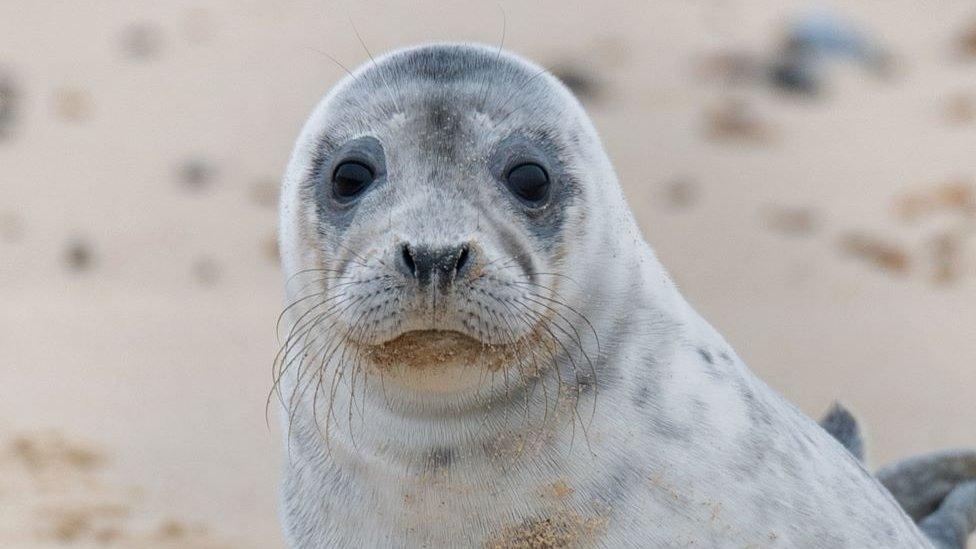'Over-friendly' seal Spearmint taken to rehab
- Published
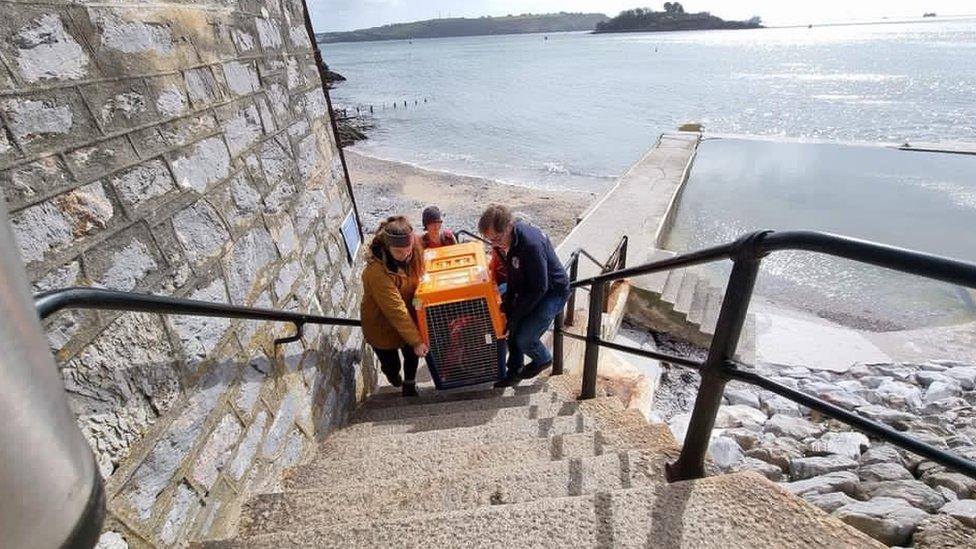
On 7 April the seal was safely captured by the BDMLR at Firestone Bay, Plymouth
A wild seal has been taken into rehab after becoming "overly-friendly" with people after being regularly fed.
Named by the RSPCA as Spearmint, the seal had been spotted in multiple locations in Plymouth Sound.
Rescuers hope to release the seal, which has become "habituated to humans", into a remote area of Scotland.
The RSPCA said rescuers were "working around the clock to get her fit and healthy" enough to be released.
Rame Wildlife Rescue Network, made up of multiple organisations, has raised more than £5,000 for the seal's relocation to a remote area in Scotland.
The volunteers said they had been monitoring the North Atlantic grey seal since it was spotted in Cawsand Bay, Cornwall, about seven months ago.
Jessica Collins, a marine medic at British Divers Marine Life Rescue (BDMLR), started the rescue network.
She said the seal, which is an endangered species, had become "habituated to humans" - photos show the seal interacting with wild swimmers and climbing on to paddleboards on crowded beaches.
It is the second time the seal has been taken into rehabilitation, the first was due to human disturbance, Rame Wildlife Rescue Network said.
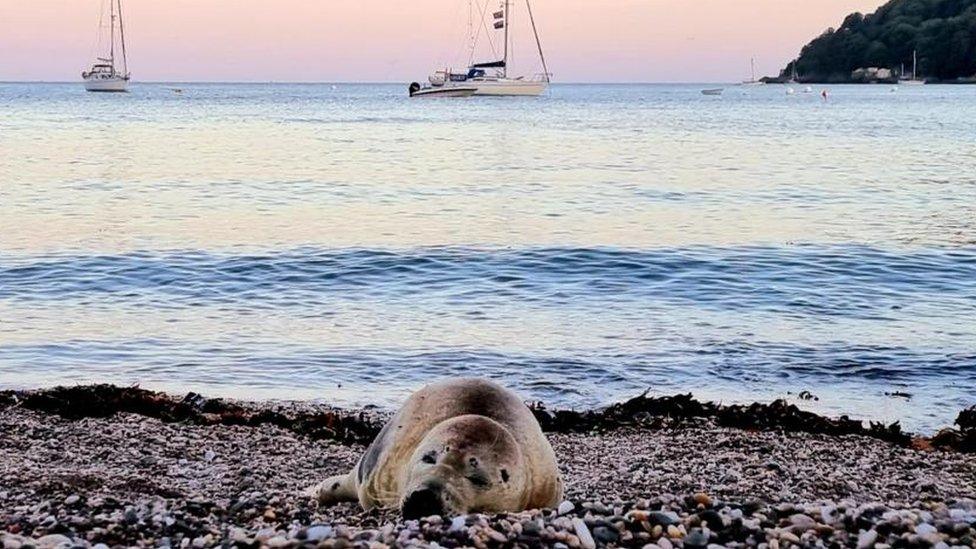
The seal had become a regular sight around Plymouth Sound, with many people sharing photos of the animal on a social media page dedicated to it
Ms Collins said: "Although at a young age she needed to be rehabilitated, her interest in humans grew once released as she was fed regularly by tourists.
"After multiple relocations she found Cawsand Bay where we were able to control the situation better and keep people away.
"We all hoped she would rewild but upon discovering Plymouth this became more difficult and the feeding began once more and bad habits remained.
"This poor seal is an example of what happens when humans feed and habituate a wild animal. The animal is the one who suffers."
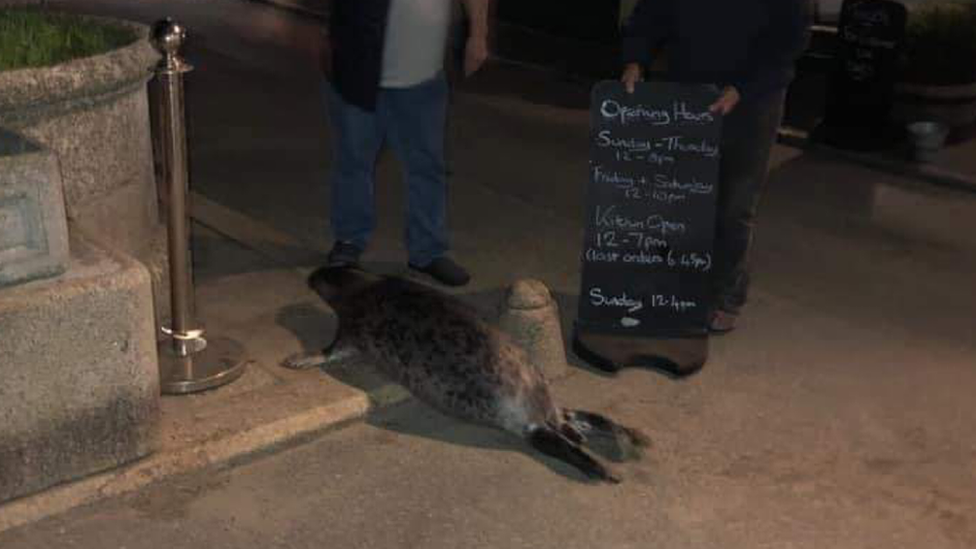
People in Cawsand tried to encouraged the seal back to the beach
In early April, Spearmint was found in the village of Cawsand after she left the beach and wandered up the road.
People in Cawsand created a barricade to stop the seal from going on to the roads, however, Rame Wildlife Rescue Network said the seal persisted in climbing on boats and eventually managed to get across.
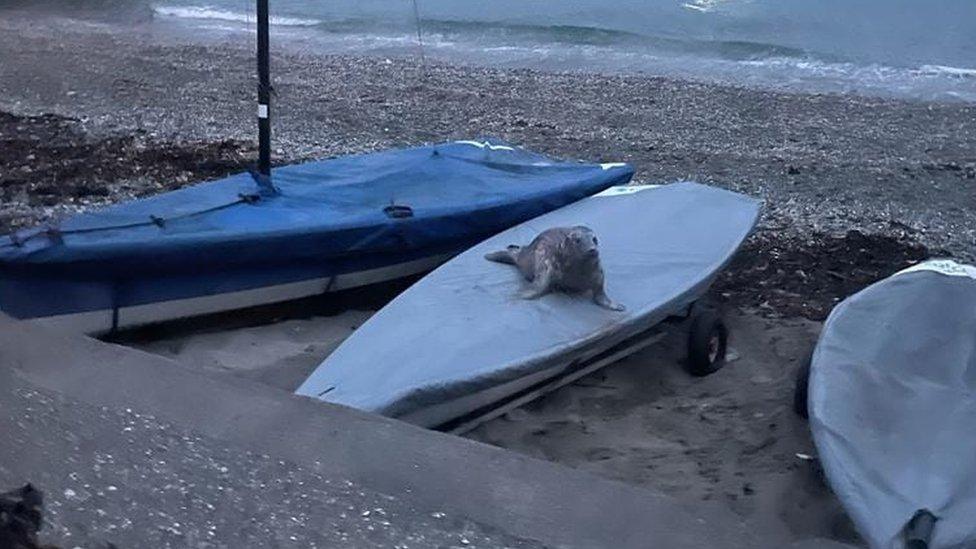
The seal's behaviour had been affected by people feeding her in the wild, resulting in her becoming over-friendly, the BDMLR said
The seal was found wandering around the neighbouring village of Kingsand a couple of days later, making the seal's presence "untenable", the BDMLR said.
On 7 April the seal was caught at Firestone Bay, Plymouth, by the BDMLR and "returned to rehabilitation" at the RSPCA West Hatch Animal Centre in Taunton, Somerset.
The RSPCA said she was brought to the centre because of "concerns for her welfare".
It said she was not eating and had problems with one of her ears.
"Naturally wild animals can find being in captivity, even for a brief time, a struggle, but our experienced team, who specialise in wildlife rehabilitation, are doing everything they can to reduce the stress for Spearmint and try to get her re-released as soon as possible," it said.
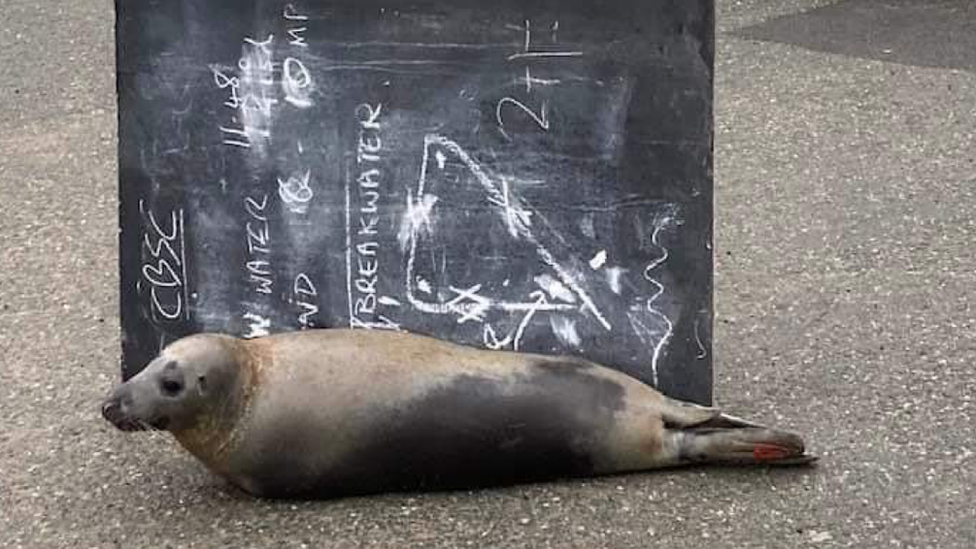
The seal was found wandering around Cornish villages
A spokesperson from the BDMLR said: "Spearmint's behaviour had sadly been affected by people feeding her in the wild, resulting in her becoming over-friendly.
"We would like to share our heartfelt thanks to the large number of volunteers from many organisations and the community members who helped however they could with monitoring Spearmint over the last several months.
"Their efforts have given her the best chance possible to keep her in the wild in this region."
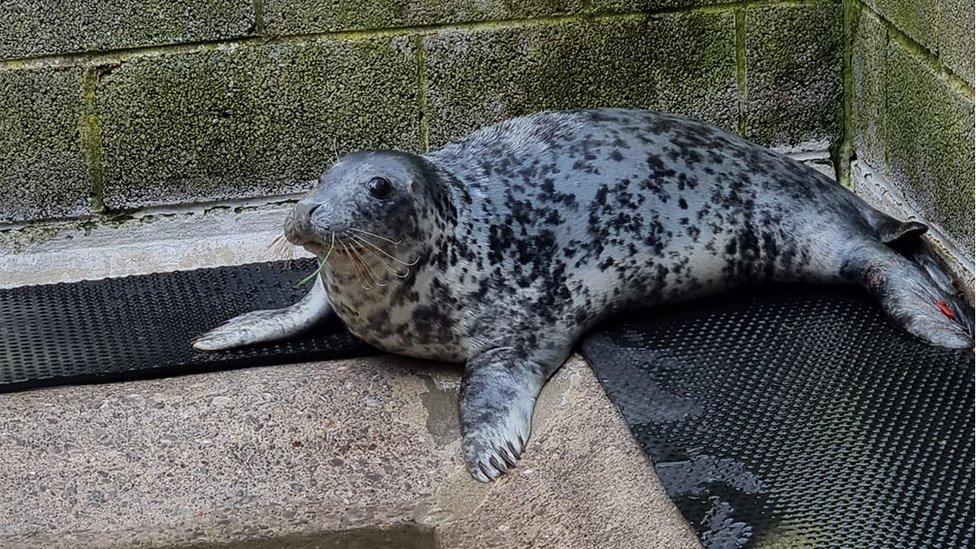
Rame Wildlife Rescue Group said the seal was struggling in captivity
Rame Wildlife Rescue Network said it hopes relocation plans will allow the seal to "live a wild life".
Another option would be spending the rest of her life in captivity in a seal sanctuary, the network said.
The group said the RSPCA would make an informed decision on the seal's future, however, the raised funds would "give her the best possible solution going forward".
"The key message throughout has been to give seals space and to not feed them, and we hope this carries through beyond Spearmint's story and prevent this from happening again to another seal," the BDMLR added.

Follow BBC News South West on Twitter, external, Facebook, external and Instagram, external. Send your story ideas to spotlight@bbc.co.uk, external.
- Published13 April 2022
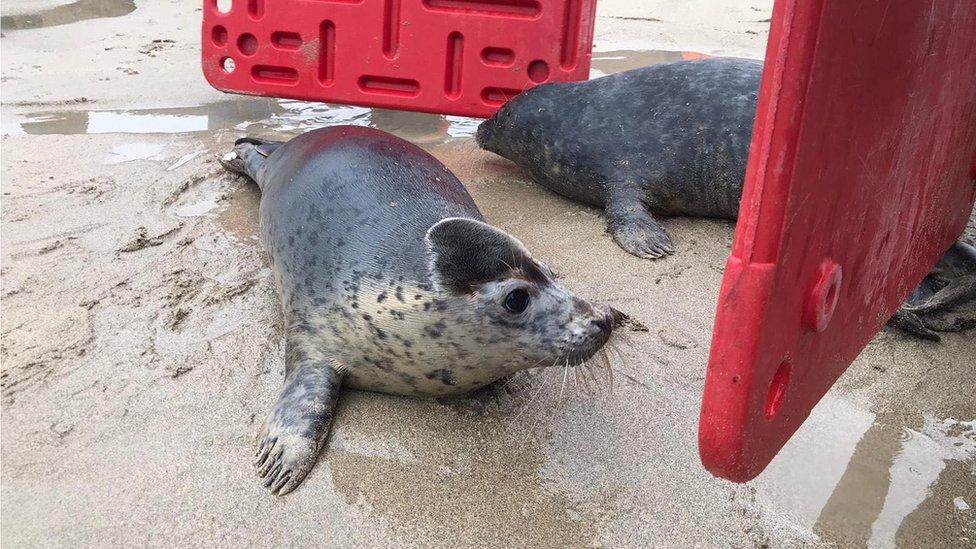
- Published8 February 2022
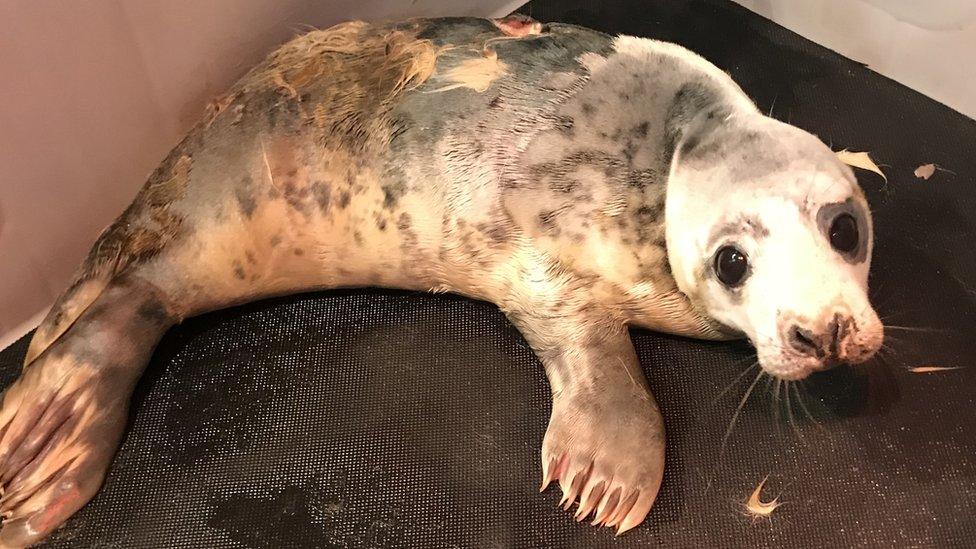
- Published25 January 2022
